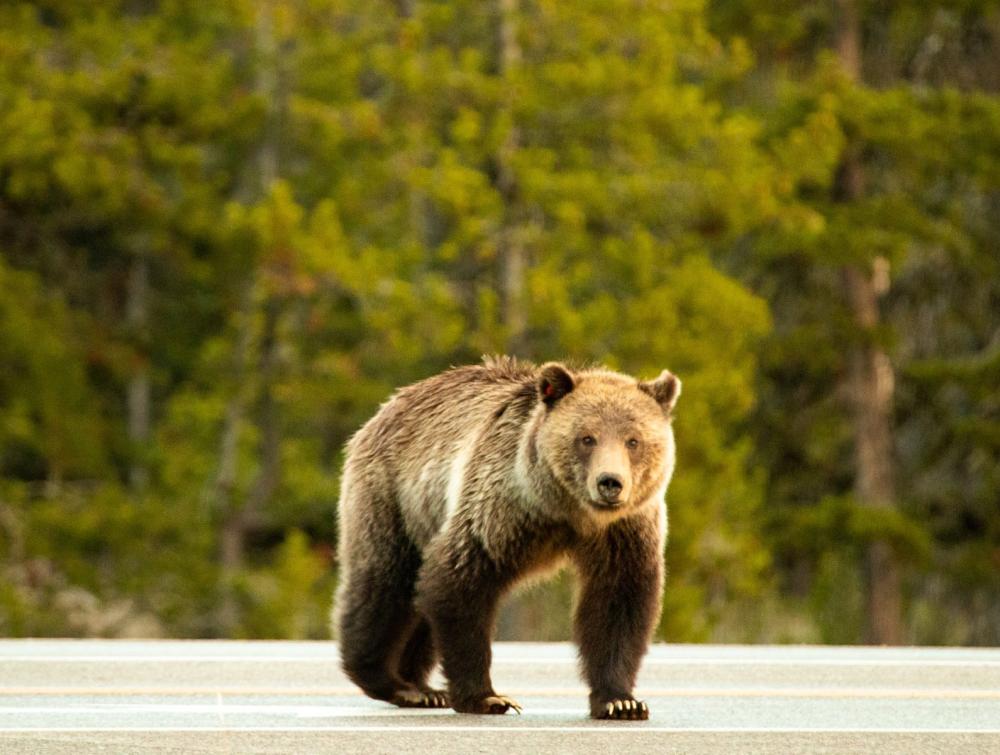Trump Administration Undermines Environmental Review for Drilling in Arctic National Wildlife Refuge

Grand Teton, WY
NPS/Adams
Rushed and secretive process yields faulty scientific analysis that ignores impacts to human rights and wildlife.
WASHINGTON — The Bureau of Land Management today released its final Environmental Impact Statement (FEIS) for oil and gas drilling within the ecologically sensitive coastal plain of the Arctic National Wildlife Refuge. This is the latest move by the Trump administration in a rushed process to open one of the nation’s most remote and iconic landscapes to oil drilling. A final Record of Decision (ROD) is expected in approximately 30 days.
The Trump administration’s plan for the Arctic Refuge is flatly illegal. The most egregious elements of the plan include:
- It prioritizes the most aggressive leasing option (Alternative B) of offering the entire coastal plain to the oil and gas industry with no meaningful protections for Alaska Native cultural values and ways of life, sacred lands, wildlife, water, and the area’s iconic wilderness characteristics;
- It ignores the extensive testimony and traditional knowledge of the Gwich’in Peoples of Alaska and Canada, which demonstrated that oil and gas exploitation of the coastal plain would have significant impacts on the calving and nursery grounds for the Porcupine Caribou Herd, and diminishes the deep physical, social, cultural, and spiritual connection of the Gwich’in to the caribou, which they rely on for food and their culture; and
- It fails to disclose and underestimates the impacts of oil and gas activity on iconic species like polar bears, caribou, and millions of migratory birds, as well as the tundra and permafrost that support the Arctic ecosystem.
The Arctic Refuge contains the greatest biodiversity of any protected area north of the Arctic Circle. It is one of the United States’ most majestic places — home to the Porcupine caribou herd, imperiled polar bears, Dolly Varden and other valued fish species, wolves, muskoxen, Dall sheep, arctic foxes and nearly 200 species of migratory birds that migrate to the coastal plain from six continents and all 50 states.
Nine thousand Indigenous Peoples of the Gwichʼin Nation of Alaska and Canada make their home on or near the migratory route of the Porcupine Caribou Herd. They have depended on caribou for their way of life for thousands of years. and call the coastal plain ‘The Sacred Place Where Life Begins.’ Protecting their sacred lands and the Porcupine caribou is a matter of human rights.
A coalition of Indigenous, human rights and environmental organizations released the following statement:
“From the beginning, the Trump administration set out to rush this process, depriving federal scientists, the Gwich'in people and the public the opportunity to meaningfully contribute and weigh in on the process. More than one million comments were submitted on the draft environmental impact statement. This included hundreds of pages of detailed technical comments that raised very significant issues that have yet to be addressed. Despite promising a robust, scientifically sound review process, the Trump Interior Department has cut corners at every step, resulting in the release of a deeply flawed final Environmental Impact Statement.
“The Arctic Refuge is one of our nation’s most majestic and sacred public lands, and the Trump administration’s rush to sell it off to the highest bidder must be stopped. The Refuge’s biological heart, the coastal plain, is no place for oil and gas development. The Department of the Interior cannot continue to barrel forward with plans for destructive drilling, disregarding the devastating biological, cultural, climate and human rights impacts that fossil fuel extraction will have in the rapidly-warming Arctic.
“Now the question is, which oil company will do Trump's bidding?”
Background:
Joe Balash, former assistant interior secretary for land and minerals management, went on record recently to promise that a lease sale would happen this year. To meet that promise, Trump officials have recklessly followed an expedited timeline that has allowed virtually no time for federal officials to gather and analyze new and updated scientific data, fully examine the negative impacts drilling would have on the landscape and wildlife, or hold meaningful discussions with the local communities and other stakeholders. In fact, it was recently revealed that 18 U.S. Fish and Wildlife Service memoranda identifying the types of priority information needed “for planning, developing, and managing an oil and gas program in the [coastal plain]” were withheld from the EIS process. These documents — expert memos covering issues including permafrost, water resources and caribou impacts — were also withheld from several requests filed under the Freedom of Information Act. A lawsuit related to that lack of transparency is ongoing.
Contact:
Edit Ruano, The Wilderness Society, 530-305-9427, edit_ruano@wilderness.org
